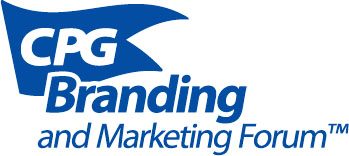For many years, I have looked forward to studying Fortune’s Most Admired Companies. It was credible, it was influential and it translated positively into building corporate reputation. But that was in simpler times when it was possible to dominate the media with a single study and it suddenly struck me this year how much everything has changed in this regard. And the more I dug, the more uneasy I began to feel.
But let’s start with the good news where much of the composition of the 50 All-Stars most admired companies really makes sense:
- -Apple as #1 is a no-brainer
- -The titans of packaged goods (Procter & Gamble, Coca-Cola, Nestlé) are well represented
- -It reflects the recent reinvention and revival of Starbucks
- -As a category, technology is appropriately dominant
- -It includes tried and trusted performers such as McDonald’s, Disney, BMW and American Express
My concerns about this study fall into four categories:
- The research methodology itself, which I personally find unbelievably confusing. To the layman, it appears that there are two studies – the list of Industry Stars and the 50 All Stars. My frustration is that it is virtually impossible to reconcile the two studies and this leaves me a little frustrated and confused.
- The geographic scope, which claims to be global, has 42 out of the top 50 All Stars selected from the United States. Now that might be good news for our recession-battered pride but it simply doesn’t add up. No Chinese or Indian companies make the list and only three Japanese and three European companies make the cut.
- Some of the companies selected are worrying. For example, on what basis can Toyota and Johnson & Johnson be on anyone’s most admired list after their ongoing quality problems? How can Goldman, JPMorgan and Wells Fargo make the top 50…have we forgotten that quickly? Lowe’s and Yum Brands are fine companies but do they really have a place in the world’s 50 most admired. I would argue no.
- The definition of the word ‘admiration’ is also in question. Now I am not privy to the specific questions in the study, especially the nine criteria used to define and assess admiration. But all of my instincts tell me that there are a lot of traditional factors being used with the result that the study is beginning to feel old. How can Facebook (the world’s fastest growing company) not be mentioned…or Twitter or even Groupon?
Now, you need to know that I love surveys. I really love surveys. I spend hours pouring over them. I am a fanatic of the “top 100 this” or the “most global that” but like everything else in this world, we have all begun to look at things differently. We have extraordinary access to information. As marketers, we undertake many studies of our own. We expect transparency and we demand timeliness and accuracy from them. But we also have exceptional radar when it comes to study results that just don’t feel right. And that’s the feeling that I have about “The World’s Most Admired Companies” report from Fortune. I would like to trust this study and share it with our clients but I simply can’t in its current format.
Simon Williams
